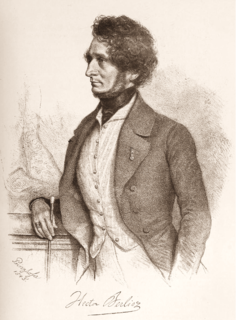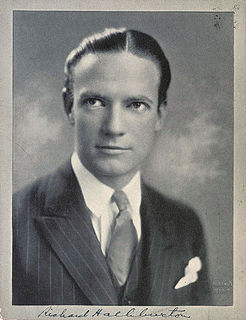Top 151 Lament Quotes & Sayings - Page 3
Explore popular Lament quotes.
Last updated on April 19, 2025.
When you are young, you think that the old lament the deterioration of life because this makes it easier for them to die without regret. When you are old, you become impatient with the way in which the young applaud the most insignificant improvements … while remaining heedless of the world’s barbarism. I don’t say things have got worse; I merely say the young wouldn’t notice if they had. The old times were good because then we were young, and ignorant of how ignorant the young can be.
Through primrose tufts, in that green bower,
The periwinkle trails its wreath;
And 'tis my faith that every flower
Enjoys the air it breathes.
The birds around me hopped and played,
Their thoughts I cannot measure;
But the least motion which they made,
It seemed a thrill of pleasure.
The budding twigs spread out their fan,
To catch the breezy air;
And I must think, do all I can
That there was pleasure there.
If this belief from heaven be sent,
If such be Nature's holy plan,
Have I not reason to lament
What man has made of man?
Enjoy the blessing of strength while you have it and do not bewail it when it is gone, unless, forsooth, you believe that youth must lament the loss of infancy, or early manhood the passing of youth. Life's race-course is fixed; Nature has only a single path and that path is run but once, and to each stage of existence has been allotted its own appropriate quality; so that the weakness of childhood, the impetuosity of youth, the seriousness of middle life, the maturity of old age.. each bears some of Nature's fruit, which must be garnered in its own season.
We Are All the Same
Listen to the reeds as they sway apart;
Hear them speak of lost friends.
At birth, you were cut from your bed,
Crying and grasping in separation.
Everyone listens, knowing your song.
You yearn for others who know your name,
And the words to your lament.
We are all the same, all the same,
Longing to find our way back;
Back to the one, back to the only one.
What it 't to us, if taxes rise or fall,
Thanks to our fortune, we pay none at all.
Let muckworms who in dirty acres deal,
Lament those hardships which we cannot feel,
His grace who smarts, may bellow if he please,
But must I bellow too, who sit at ease?
By custom safe, the poets' numbers flow,
Free as the light and air some years ago.
No statesman e'er will find it worth his pains
To tax our labours, and excise our brains.
Burthens like these with earthly buildings bear,
No tributes laid on castles in the air.
When thou diest, thy soul will be tormented alone; that will be a hell for it, but at the day of judgment they body will join thy soul, and then thou wilt have twin hells, thy soul sweating drops of blood, and thy body suffused with agony. In fire exactly like that which we have on earth thy body will lie, asbestos-like, forever unconsumed, all they veins roads for the feet of pain to travel on, every nerve a string on which the devil shall forever play his diabolical tune of 'Hell's Unutterable Lament'.
I once picked up a woman from a garbage dump and she was burning with fever; she was in her last days and her only lament was: My son did this to me. I begged her: You must forgive your son. In a moment of madness, when he was not himself, he did a thing he regrets. Be a mother to him, forgive him. It took me a long time to make her say: I forgive my son. Just before she died in my arms, she was able to say that with a real forgiveness. She was not concerned that she was dying. The breaking of the heart was that her son did not want her. This is something you and I can understand.
In my view, madness is a place. You go. You come back. And I think we all take turns being the mental patient. Without a touch of crazy, literature can be a desolate place. In the current climate of careful speech, even fearful speech, smoke-free film scripts, thought-free songs, and child-proof locks on American minds, the oft-repeated lament of the arts is "Where have all those wonderful madmen gone?"
Lords, I protest my soul is full of woe
That blood should sprinkle me to make me grow.
Come, mourn with me for what I do lament,
And put sullen black incontinent.
I'll make a voyage to the Holy Land
To wash this blood off from my guilty hand.
March sadly after. Grace my mournings here
In weeping after this untimely bier.
It gladdens me to know that Baldr’s father [Odin] makes ready the benches for a banquet. Soon we shall be drinking ale from the curved horns. The champion who comes into Odin’s dwelling [Valhalla] does not lament his death. I shall not enter his hall with words of fear upon my lips. The Æsir will welcome me. Death comes without lamenting… Eager am I to depart. The Dísir summon me home, those whom Odin sends for me [Valkyries] from the halls of the Lord of Hosts. Gladly shall I drink ale in the high-seat with the Æsir. The days of my life are ended. I laugh as I die.
A myriad of men are born; they labor and sweat and struggle; ...they squabble and scold and fight; they scramble for little mean advantages over each other; age creeps upon them; infirmities follow; ...those they love are taken from them, and the joy of life is turned to aching grief. It comes at last--the only unpoisoned gift earth ever had for them--and they vanish from a world where they were of no consequence, ...a world which will lament them a day and forget them forever.
One is constantly reminded of the infinite lavishness and fertility of Nature-inexhaustible abundance amid what seems enormous waste. And yet when we look into any of her operations that lie within reach of our minds, we learn that no particle of her material is wasted or worn out. It is eternally flowing from use to use, beauty to yet higher beauty; and we soon cease to lament waste and death, and rather rejoice and exult in the imperishable, unspendable wealth of the universe.
In my opinion, the trombone is the true head of the family of wind instruments, which I have named the 'epic' one. It possesses nobility and grandeur to the highest degree; it has all the serious and powerful tones of sublime musical poetry, from religious, calm and imposing accents to savage, orgiastic outburst. Directed by the will of the master, the trombones can chant like a choir of priests, threaten, utter gloomy sighs, a mournful lament, or a bright hymn of glory; they can break forth into awe-inspiring cries and awaken the dead or doom the living with their fearful voices.
My experiences of men has neither disposed me to think worse of them nor be indisposed to serve them: nor, in spite of failures which I lament, of errors which I now see and acknowledge, or the present aspect of affairs, do I despair of the future. The truth is this: The march of Providence is so slow and our desires so impatient; the work of progress so immense and our means of aiding it so feeble; the life of humanity is so long, that of the individual so brief, that we often see only the ebb of the advancing wave and are thus discouraged. It is history that teaches us to hope.
People are storytelling creatures. We like stories that go somewhere, and therefore we like trends - because trends are things that either get better or get worse, so we can either rejoice or lament. But we mistakenly depict many things as trends moving in some direction. We take the "full house" of variation in a system and try to represent it as a single number, when in fact what we should be doing is studying the variation as it expands and contracts. If you look at the history of the variation in all its complexity, then you see there's no trend.
I've built many doorways and set out traps so that no one will be able to reach this place. That's what the angel said. This is a castle of darkness for the angel and I alone. Only within this yielding gloom can I lament the misfortune that has rained down all around me, only here am I permitted to scorn and pity the ugliness, the filthiness of how I smile and pretend at being pure in the light of day.
By accepting a suspicion against the neighbor, by saying, 'What does it matter if I put in a word about my suspicion? What does it matter if I find out what my brother is saying or what a guest is doing?' the mind begins to forget about its own sins and to talk idly about his neighbor, speaking evil against him, despising him, and from this he falls into the very thing he condemns. Because we become careless about our own faults and do not lament our own death, we lose the power to correct ourselves and we are always at work on our neighbor.
Youth -- nothing else worth having in the world...and I had youth, the transitory, the fugitive, now, completely and abundantly. Yet what was I going to do with it? Certainly not squander its gold on the commonplace quest for riches and respectability, and then secretly lament the price that had to be paid for these futile ideals. Let those who wish have their respectability -- I wanted freedom, freedom to indulge in whatever caprice struck my fancy, freedom to search in the farthermost corners of the earth for the beautiful, the joyous and the romantic.
The television screen, so unlike the movie screen, sharply reduced human beings, revealed them as small, trivial, flat, in two banal dimensions, drained of color. Wasn't there something reassuring about it! -- that human beings were in fact merely images of a kind registered in one another's eyes and brains, phenomena composed of microscopic flickering dots like atoms. They were atoms -- nothing more. A quick switch of the dial and they disappeared and who could lament the loss?
The life of an Indian is like the wings of the air. That is why you notice the hawk knows how to get his prey. The Indian is like that. The hawk swoops down on its prey, so does the Indian. In his lament he is like an animal. For instance, the coyote is sly, so is the Indian. The eagle is the same. That is why the Indian is always feathered up, he is a relative to the wings of the air.
I certainly do not lament the decadence of knight errantry, nor wish to exchange the protection of the laws for that of the doughtiest champion who ever set lance in rest; but I do, in truth, believe that this knightly sensitiveness of honorable feeling is the best antidote to the petty soul-degrading transactions of every-day life, and that the total want of it is one reason why this free-born race care so very little for the vulgar virtue called probity.
There's a wonderful old Italian joke about a poor man who goes to church every day and prays before the statue of a great saint,'Dear saint-please, please, please...give me the grace to win the lottery.' This lament goes on for months. Finally the exasperated statue come to life, looks down at the begging man and says in weary disgust,'My son-please, please, please...buy a ticket.
In our whole life melody the music is broken off here and there by rests, and we foolishly think we have come to the end of time. God sends a time of forced leisure, a time of sickness and disappointed plans, and makes a sudden pause in the hymns of our lives, and we lament that our voice must be silent and our part missing in the music which ever goes up to the ear of our Creator. Not without design does God write the music of our lives. Be it ours to learn the time and not be dismayed at the rests. If we look up, God will beat the time for us.
I have long admired the visceral storytelling and moral complexity of John Vaillant’s brilliant non-fiction about humankind’s tragically ambivalent relationship with the natural world. Now he brings his abundant literary gifts to a debut novel set in a very real borderland in which human beings are themselves treated like animals. The Jaguar’s Children is a beautifully rendered lament for an imperiled culture and the brave lives that would preserve it. You should read it.
Gradually, the night stumbled as if stunned and wandering aimlessly into an overcast day -- limped through the wilderland of transition as though there were no knowing where the waste of darkness ended and the ashes of light began. The low clouds seemed full of grief -- tense and uneasy with accumulated woe -- and yet affectless, unable to rain, as if the air clenched itself too hard for tears. And through the dawn, Atiaran and Covenant moved heavily, unevenly, like pieces of a broken lament.
Especially look to those sins to which your crosses have some reference and respect. Are you crossed in your goods? Think if you did not over-love them and get them unjustly, or if in your children, see if you did not over-love them and cocker them, and so in all things of like kind. In what God smites vou, see if you have not in that sinned against Him, and so frame to lament your sins and to seek help against them.
Why do so many ingenious theorists give fresh reasons every year for the decline of letter writing, and why do they assume, in derision of suffering humanity, that it has declined? They lament the lack of leisure, the lack of sentiment ... They talk of telegrams, and telephones, and postal cards, as if any discovery of science, any device of civilization, could eradicate from the human heart that passion for self-expression which is the impelling force of letters.
The world is broken, and all our attempts to fix it will inevitably fail, and some day all life will be extinguished from the planet and there will be no one to remember that any of us ever did anything. But this fact, strangely, does not delegitimize hope, because every now and again we find evidence that hope is helpful. This evidence, in my opinion, should be celebrated-even as we lament? and fight the devastation.






























